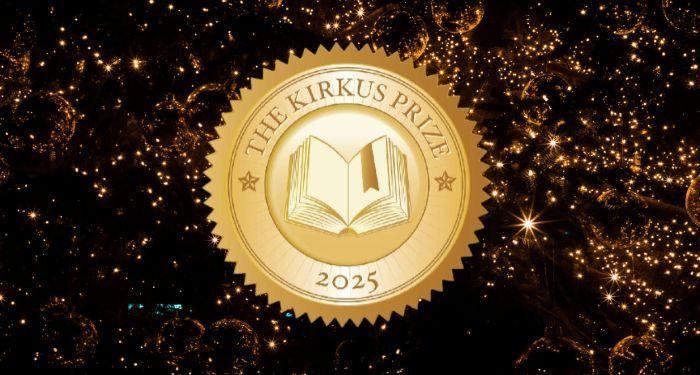The prestigious Kirkus Prize finalists have been announced, featuring a diverse and accomplished group of authors including Angela Flournoy, Kiran Desai, and Megha Majumdar. Celebrated for recognizing outstanding literary works across fiction, nonfiction, and young readers’ literature, the Kirkus Prize continues to highlight voices that resonate deeply in contemporary literature. This year’s finalists underscore a rich tapestry of storytelling that spans cultures and experiences, setting the stage for a compelling competition ahead.
Kirkus Prize Finalists Spotlight Diverse Literary Voices
The latest finalists for the Kirkus Prize highlight an impressive range of voices reshaping contemporary literature. Among the distinguished authors, Angela Flournoy, Kiran Desai, and Megha Majumdar each bring distinct cultural narratives and innovative storytelling techniques that resonate deeply with readers around the globe. Their works explore themes like identity, diaspora, and socio-political upheaval, reflecting a broader movement towards inclusivity and diverse perspectives in the literary world.
These finalists illustrate how the Kirkus Prize continues to champion literary excellence that transcends traditional boundaries. Their books have been praised not only for their compelling plots but also for their nuanced portrayals of complex characters navigating personal and collective histories. Key highlights of this year’s finalists include:
- Angela Flournoy: Celebrated for her richly textured family saga with interwoven generational voices.
- Kiran Desai: Acclaimed for her lyrical prose set against vibrant cultural and political landscapes.
- Megha Majumdar: Recognized for her incisive narrative on societal divisions and human resilience.
Angela Flournoy’s Innovative Narrative Approach Gains Acclaim
Angela Flournoy has captivated critics and readers alike with her fresh storytelling techniques that blend rich, multi-layered characters with evocative settings. Her work, noted for its intricate narrative structure, delves deeply into themes of identity, heritage, and resilience, crafting a literary experience that feels both intimate and epic. This innovative approach has not only redefined contemporary fiction but also secured her a place on the prestigious list of Kirkus Prize finalists.
Her distinctive style is characterized by:
- Interwoven timelines that reveal character motivations subtly over time
- Vivid sensory details that immerse readers in the worlds she creates
- Complex familial relationships that challenge traditional narratives
| Element | Impact |
|---|---|
| Non-linear plot | Enhances suspense and engagement |
| Rich character backstories | Builds emotional depth |
| Social themes | Promotes critical reflection |
Kiran Desai Explores Global Themes with Poignant Depth
Kiran Desai’s latest work has captivated readers and critics alike by weaving intricate narratives that transcend borders and cultures. Her storytelling is characterized by a profound examination of displacement, identity, and belonging, anchored in vivid, emotionally rich prose. Through layered characters grappling with the complexities of globalization, Desai demonstrates her ability to illuminate universal struggles with nuanced sensitivity and intellectual rigor.
Her exploration unfolds through a tapestry of experiences that resonate globally, addressing themes such as migration, cultural conflict, and resilience. Below is a glimpse of the core themes reflected in her work:
- Migration and Memory: The enduring impact of leaving one’s homeland and the memories that shape personal identity.
- Cultural Hybridity: The blending and clashing of traditions in an increasingly interconnected world.
- Economic Disparities: The influence of socio-economic divides on human relationships and community dynamics.
| Theme | Impact | Key Element |
|---|---|---|
| Migration | Explores dislocation and hope | Character-driven narratives |
| Cultural Hybridity | Highlights cultural intersections | Multifaceted perspectives |
| Economic Disparities | Exposes social inequality | Realistic social settings |
Megha Majumdar’s Bold Storytelling Challenges Social Norms
Megha Majumdar has quickly established herself as a formidable voice in contemporary literature, deftly using her narratives to question societal conventions and expose deeply entrenched inequities. Her work transcends borders, weaving compelling tales that confront themes of identity, ambition, and the consequences of silence in a rapidly evolving world.Through characters that grapple with stark realities, Majumdar reveals the intricate layers of social stratification and challenges readers to reconsider their perceptions of success and morality.
Her storytelling is marked by a fearless exploration of taboo subjects and a nuanced portrayal of marginalized communities. Key elements that define her bold approach include:
- Unflinching depiction of poverty and class divides
- Subversion of traditional gender roles and expectations
- Insight into the complex relationship between individual agency and collective responsibility
| Aspect | Impact | Reader Response |
|---|---|---|
| Thematic Depth | Encourages empathy and reflection | Profound and lasting |
| Character Complexity | Challenges stereotypes | Engaging and thought-provoking |
| Cultural Commentary | Promotes awareness | Eye-opening and insightful |
Insights and Conclusions
As the Kirkus Prize finalists are revealed,the literary world eagerly awaits the proclamation of this year’s winners. With celebrated authors such as Angela Flournoy, Kiran Desai, and Megha Majumdar among the contenders, the competition highlights a diverse and compelling array of voices shaping contemporary literature. The final awards ceremony promises to be a notable moment, underscoring the enduring impact of powerful storytelling. Stay tuned as these distinguished writers vie for one of the most prestigious honors in the literary community.
